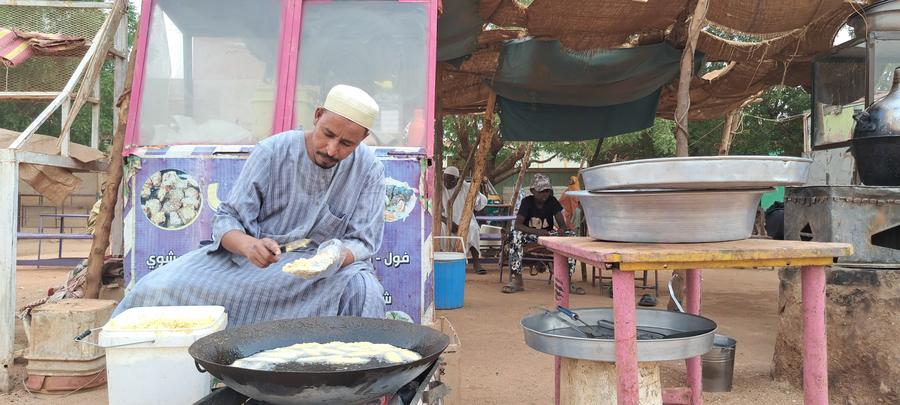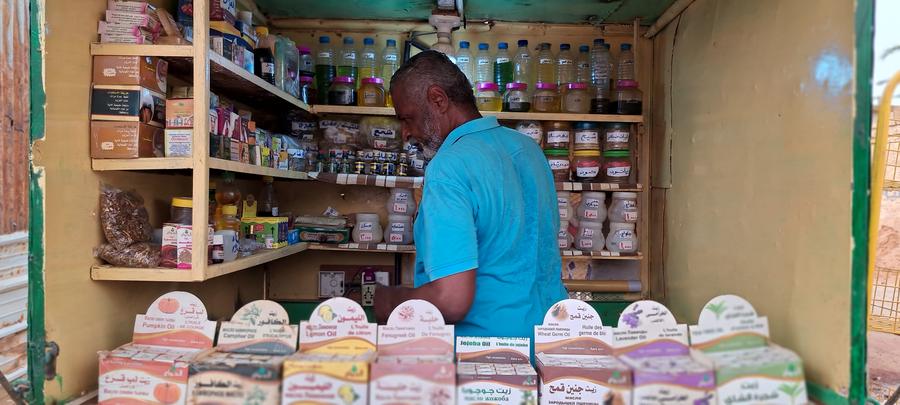War-torn Sudanese workers struggle to survive with part-time jobs

KHARTOUM, June 30 (Xinhua) — The ongoing war in Sudan has devastated the technology, health and education sectors, as well as other public and private services that employ large numbers of skilled workers.
Sudan has been embroiled in a deadly conflict between the Sudanese Armed Forces and the paramilitary Rapid Support Forces since mid-April 2023, which has claimed more than 16,650 lives, according to the situation report on Sudan updated at the end of June by the UN Office for the Coordination of Humanitarian Affairs.
The war also paralyzed the entire economy, led to the bankruptcy of many companies and the closure of public institutions, and forced skilled workers to switch to the extremely volatile manual labor market or to become self-employed.
In the Karari district of the city of Omdurman, north of the Sudanese capital Khartoum, a large emergency accommodation area for war refugees, former IT worker Bakri Merghani now sells clothes and accessories.

Before the war, the 41-year-old worked for a renowned IT company in Khartoum and had a high salary there.
“Soon after, the war broke out, my business came to a complete standstill and I had to flee to northern Omuduran, where I opened a small clothing store,” he told Xinhua, adding that business was poor.
“Many days there are no customers, and sometimes we sell things for around 5,000 Sudanese pounds (around $2.77 on the parallel market) all week long,” Merghani said.
According to the International Monetary Fund (IMF), the war caused Sudan’s unemployment rate to rise from 32.14 percent in 2022 to 47.2 percent in 2024. A study by the American Food Policy Institute predicted that Sudan will lose five million jobs due to the war.
Tariq Shuaib, 56, a government employee before the war, now runs a herbal medicine shop.

“After the war broke out, we were looted, lost our jobs and had no source of income,” Shuaib told Xinhua as she prepared herbal solutions and other ingredients.
“Life in war is very hard and there is no money,” said the breadwinner of a family of five, pointing out that his remedies were a popular alternative for many patients who could not get their prescribed medicines due to “scarcity and high prices.”
Nevertheless, the war also revealed the positive side of humanity: Sudanese abroad donated to needy families, and domestic initiatives emerged to provide these households with much-needed food aid in difficult times.
Mohamed Abdul-Baqui, a 59-year-old teacher, said “such social solidarity has significantly mitigated the impact of the suffering.”
Sudan’s government revenues have fallen by more than 80 percent due to the war, Sudan’s Finance Minister Jibril Ibrahim said in February.
Citing an unnamed representative of the Sudanese merchant army, the news channel Al Jazeera reported in April that the war had paralyzed the work of at least 1,000 businesses in Sudan due to property damage, looting or fires, mainly in the industrial, commercial, food and medical sectors.
Meanwhile, the Sudanese pound has continued to depreciate against foreign currencies. The exchange rate of one dollar is currently 1,800 Sudanese pounds, compared to about 600 pounds before the war.
Meanwhile, the inflation rate in Sudan has risen to 256.17 percent, an increase of 117.4 percent, according to IMF data. The Sudanese government has not yet released any reports on the war-related inflation rate.
In recent months, international aid agencies have warned of a growing famine in Sudan due to the ongoing conflict. On Thursday, the United Nations said residents and displaced people in no fewer than 14 areas in Sudan were at risk of famine. ■



